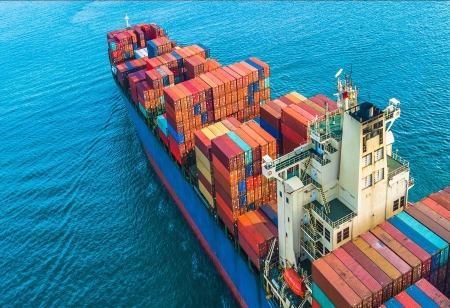
Not having international freight forwarders is a problem as shippers would be forced to include the enchanting logistical task of supply chain management. While supply chain management takes place, it would be excellent work of reducing the wherewithal shippers for performing an ever-important role in the worldwide marketplace for selling commodities. The mountaineering international trade starts every day with the plot of an action-packed blockbuster schedule. There are bagging dollars at stake and the worldwide economic welfare that is almost hanging in the balance, political implications, and when bureaucracy is not an exciting task, the same automatically characteristically entails very real risks of damage in terms of physical impairment.
However, it is not of debate that international trade is exciting. Helping the development of International Trade Business is freight forwarding, which is the most lucrative specialized subsector in logistics and supply chain management. The subsector is also not well known. The most optimizing part is freight forwarding which helps in engaging to working behind the scenes, acting as an invisible hand of international shipping. Freight Forwarding requires administrative know-how, customs expertise, and strategic, hard-wrought networks of shipping partnerships.
Freight Forwarding Companies and their hold on Industry Standards
Freight forwarders are sometimes not gripped to the industry as ‘travel agents for cargo,’ or ‘architects of transport.’ Inclusive of pocket-sized phrases, these are pocketing the actual descriptions. Alike to a travel agent, a forwarder has to deal with schedules and coordinate trips for cargo and plan up the necessary documentation for ensuring the trip proceeds happen with a smooth transition. Being architects, Freight Forwarders are loped with plotting and constructing connections among points on their ‘blueprints’, which for freight forwarders, are product points and information flows within complicated supply chains. The freight forwarding mesmerizes works for the scheduling, coordination, and documentation of intermodal transportation in cargo on behalf of shippers.
Role Of Freight Forwarders Customs Brokerage
Customs brokerage is regarded with high terms in the business world for producing documentation that’s up to snuff with regulations of customs and requires pure attention to detail and a world of knowledge about international laws. In addition, a customs broker needs a license for working in the field. Nowadays, most forwarders are customs brokers, which makes a custom broker the ‘one-stop shop’ for every logistical need of a business. A freight forwarder will also be providing strategic consultation to exporters in sectors of compliance standards, marking and packaging, potential obstacles facing their shipment, etc.
Networking
Journeys in flights and the ocean are not the only connections that freight forwarders exhibit. The networking task also builds and maintains relationships between carriers, shippers, port officials, and other forwarders. Good relationships facilitate expeditious shipments and also incline themselves for the improvement of the likelihood of favorable shipping rates. Not only do forwarder relationships, there is a limit to the overall friction between the supply chain stage, but they can also add bottom-line value to it. Not relying upon healthy partnerships, would be nearly an impossible task for competing in the market with the shipping company giants such as UPS and FedEx, which makes networking one of the most valuable activities that forwarders engage in. It could even be debated that a forwarder is only as valuable as its network of preferred partners.
Negotiating
Negotiating freight prices can be a bit of walking on a tightrope. The most-formable forwarders are those who can find a perfect balance between trusted partnerships and practising deal-making, even if that means keeping their business open to bids from other carriers. After that, securing cargo space, and ensuring competitive rates for shipments is a top priority.
Scheduling
Forwarders are related to dealing with cargo space booking for shipments, usually with the usage of more than one mode of transportation. This requires careful coordination among all tasks integrated into a supply chain that includes suppliers, manufacturers, carriers, warehousing providers, etc. Acquiring commodities for the market is time-sensitive, and needs a travel plan that is prone to delays, which is an efficient plan and is an essential part of minimizing risk. The task is furthermore difficult and is limited to cargo space which often results in increased freight prices. Also be mentioned that holidays and peak seasonality, come with their own sets of added scheduling obstacles.
Inventory Management
Management of the warehouse optimizes significant pieces of supply chain management. Warehousing services live with the expectations of arrangement, maintenance, and storage of inventory, however, the role may also be more involved in the inclusion of business support in the sectors of supply chain management, such as purchasing and production. Proffering these services in-house, but many outsource these duties to other warehouse management experts.
Documentation
The official burden taken on by freight forwarders on behalf of their clients is substantial. At a plethora of points within the flow of a supply chain, forwarders are entrusted with stacks upon stacks of important documents, including, but not limited to: letters of credit, bills of lading, receiving reports, inventory reports, and all customs documents.
Conclusion
An experienced international freight forwarder without question is an essential part of the continuation of global trade. After nearly an exclusive decade of sharpening the skills required for successful customs brokerage and freight forwarding, International Businesses get to know how unmatched is Freight Forwarding.
We use cookies to ensure you get the best experience on our website. Read more...